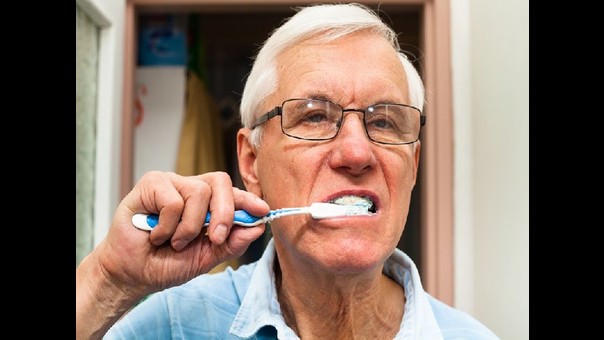
Aging is a natural and progressive process that presents individual severity and speed, which are modulated by other coexisting diseases. Therefore, it is expected that the oral cavity (lips, gums and bone) will also experience this process.
What does oral health mean?
According to the World Health Organization, oral health is a key indicator of general health, well-being and quality of life; and therefore defines it as “a state of being free of: chronic oral and facial pain, oral and throat cancer, oral infections and ulcers, periodontal disease, dental caries, tooth loss and other diseases and disorders that limit the ability of an individual to bite, chew, smile, talk and psychosocial well-being “(WHO).
This definition encompasses the importance of having a healthy mouth independent of age, since it is the route of entry of viruses, bacteria to our body, but also in the mouth there is a series of natural physiological processes that ensure our survival: eating.
Balanced and healthy eating can prolong our life by keeping us in a state of balance in which our organs function properly and naturally.
From this perspective, the relevance of maintaining the proper functioning of our masticatory apparatus changes: teeth, gums, bones, joints and masticatory muscles.

How does the general health affect the oral health of the elderly?
It is important to understand this global concept: general health and oral health are intimately related. One affects the other. And this means?
The mouth is not isolated from all the processes that occur in our organs; Although each one has a specific function, an imbalance in the state of dental health directly affects that balance.
A clear example of this is Diabetes Mellitus: an imbalance in the bacteria of the mouth, as happens in periodontal disease affects the levels of glycemia (blood sugar), and on the other hand high blood sugar levels (uncontrolled diabetes) aggravate periodontal disease. Studies suggest that periodontal disease functions as a propagator of insulin resistance (a hormone that regulates glucose) that worsens sugar control
Oral health and quality of life of the elderly.
A percentage of older adults keeps most of their natural teeth in the mouth, which is positive for chewing, sense of taste and nutrition in a way that has a positive impact on their quality of life. So it is very important to maintain the health in the teeth with a periodic professional dental cleaning, whose frequency depends on the medical condition.
With time and changes in bone, people who use prosthetics begin to feel loose, move, which prevents eating and speaking correctly. When this happens, the need for the development of a new prosthesis is evaluated. At other times only a procedure called rebase is required, a special material is used to copy the new changes in bones and gums to achieve a better fit of the prosthesis.
Leave a reply










Leave a reply